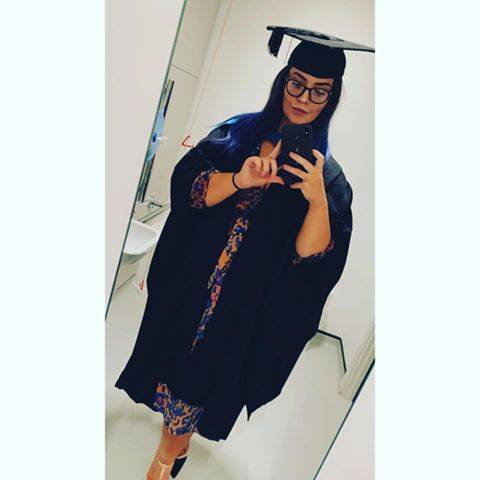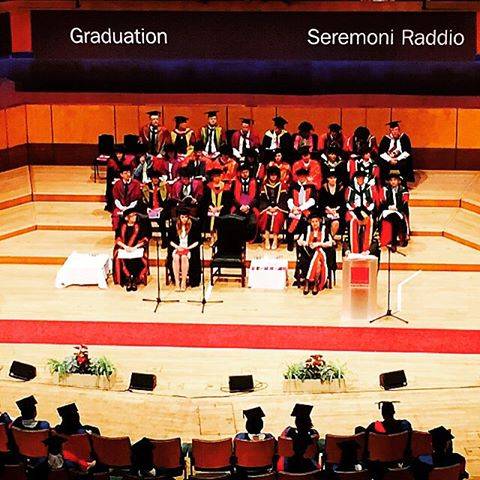沟通之前:希望您能花,三到五分钟的时间,观看我们的视频,对我们的能力,有一个初步判断。
新布伦瑞克大学毕业照展示

如果布朗尼斯·沃·科莫罗夫斯基总统于4月5日签署的一项法案仍保留在法规上,波兰的高等教育体系将发生重大变化。
《华沙商业日报》的Katrarzyna Piasecka写道,该法案原定于10月份生效,但其合宪性受到了质疑。
EW法律与宪法法庭,特别是关于收费新布伦瑞克大学的大学生在新布伦瑞克大学学习额外的主题。
目前,选择第二新布伦瑞克大学的专业在新布伦瑞克大学学习的新布伦瑞克大学的大学生可以不额外花钱,但是根据新法律,只有最聪明和最好的新布伦瑞克大学的大学生可以免付学费。
该法律还增加了新布伦瑞克大学的自主权,旨在把新布伦瑞克大学获得的资金数额和质量联系起来。
它提供的教育。
华沙商业期刊网站的完整报道

Power changed hands within South Africa’s ruling African National Congress a year ago, and national elections are looming.
What the new ruling elite will mean for higher education is unsure, but the hot political issues this year look set to include teacher education and student fees, says Dr Cheryl de la Rey, chief executive officer of the statutory advisory Council on Higher Education.
On the Council’s immediate agenda for investigation and recommendations are the ‘size and shape’ of higher education – how the system might improve to better achieve its primary goals – building the next generation of academics, curriculum responsiveness and four-year undergraduate degrees, funding, affordability and accountability, and internationalisation.
The political issues of teacher education and student fees featured at the ANC’s national congress held in Polokwane, northern South Africa, in December 2007.
There, South Africa’s deposed Deputy President Jacob Zuma was elected ANC president, trouncing Thabo Mbeki who subsequently resigned as the country’s President in 2008 – after a push from the ANC.
”We haven’t seen policy changes following Polokwane,” said De la Rey, a former deputy vice-chancellor at the University of Cape Town who took up the top CHE job last May.
“But the debate has focused on fundamental issues such as the quality of schooling and teacher education, and strengthening further education to expand the number of opportunities for tertiary education,” she told University World News in an interview.
There has also been debate about whether there should be a dedicated ministry for further and higher education.
Delegates at the ANC conference called for the reopening of teacher colleges – which were merged during the late 1990s, cutting their number from 150 to 50, and later subsumed into university education faculties – in an effort to deal with a critical shortage of teachers.
Soon afterwards, Education Minister Naledi Pandor said her department was investigating options to re-establish some colleges.
There is, said De la Rey, “no doubt that we must have another look at teacher education”.
The CHE has just completed a review of the teacher education curriculum.
“That is the issue.
We can have a number of institutional arrangements, but the core issue is the quality and content of how we train our teachers, and making teaching an attractive career option.
” There has also been discussion among the ANC and its allies, trade unions and communists, about whether the radical restructuring of higher education has been successful.
In the early 2000s, 36 institutions became 23 following a series of mergers and incorporations.
polytechnics with universities, like institutions with each other, and campus incorporations.
“If we are going to assess if they are working or not, it must be on a case by case basis.
I think we would find different answers depending on a range of factors, and that we could not reach a blanket conclusion.
”The CHE’s Higher Education Quality Committee has been gathering information through audits of institutions, including those that resulted from mergers.
“We are now generating information that will assist in ascertaining the success of individual mergers,” said De la Rey.
The really hot potato is the question of fees.
Declining state funding (now reversed) along with inflation and other factors caused high annual increases in the tuition fees charged by universities, pricing higher education out of the market for many students – including those with government bursaries and loans, which do not cover full costs.
Some in the ruling alliance, notably the ANC Youth League and student leaders, have called for free educationHowever, argued De la Rey: “We cannot look at mergers as if they were all the same.
” There were various restructuring arrangements – merging Last year Pandor – under threat of capping fees – asked Higher Education South Africa, the vice-chancellors’ association, to investigate the issue.
The matter is also being probed by the National Student Financial Aid Scheme, which disperses loans and bursaries to needy students.
The CHE is looking more broadly at higher education funding, said De la Rey.
But she warned against unintended consequences of free higher education, as experienced in Brazil, where “it has exacerbated inequalities, rather than the converse”.
In highly unequal societies with scarce resources, free higher education subsidises both poor and wealthy students – so the wealthy consume public money that could more equitably be spent on supporting poor students.
“We need to make sure that money goes where it is needed, and does not fund inequality,” she argued.
While political imperatives are likely to impact on higher education after national elections in a few months time, which the ANC is bound to win, other issues are exercising minds at the Council.
One of De la Rey’s first tasks at the CHE was to develop a business plan for the next medium term expenditure period.
It focuses on five key areas.
The first key area, she said, was revisiting the ‘size and shape’ issue.
The CHE is examining whether the higher education system has the capacity to produce the number and quality of graduates South Africa needs.
“We will also look at institutional arrangements – the question of differentiation, for instance, and the question of whether we need more institutions and, if so, what types of institutions?” The CHE is also probing the relationship between public and private higher education.
The second key area is developing the next generation of academics, in a county suffering a brain drain and skills shortages, and producing too few doctoral graduates.
Universities are battling to train and retain sufficient numbers of young academics to replace a rapidly ageing academic population.
”We will propose a national framework for growing and diversifying the academic cohort, which we will present to the Education Minister,” said De la Rey.
“There are institutional initiatives, but many rely on donors and so are not evenly distributed across the system and are not sustainable.
There is no national framework.
We will grapple with these issues and draft a set of recommendations.
”The third key area is a project on curriculum responsiveness.
“We are looking at the proposed four-year undergraduate degree,” De la Rey explained.
While four-year degrees are typical for professional degrees, such as engineering, extension of three-year undergraduate degrees has been proposed as a way of improving the success rates of large numbers of disadvantaged students.
However, she added, this investigation is proceeding slowly as “the issues are more complex than expected”.
The fourth key area has been labelled ‘funding, affordability and accountability’, as the issues are related.
“With increased funding comes the question of accountability.
The public wants to know what the return is,” said De la Rey.
“The question for debate is: how much is enough? And it is critical that we have dialogue on balancing accountability with autonomy.
”In the first quarter of 2009 the CHE will develop a conceptual basis for the funding of higher education, looking at questions such as the intention of the block grant and whether it serves its purpose, the relationship between block and earmarked funding and what their proportions of total funding should be.
The Council will then make recommendations, said De la Rey, “especially on the relationship between funding, planning and quality assurance – the three mechanisms used by the government to steer higher education”.
The fifth key area is globalisation, regionalisation and internationalisation, said De la Rey.
“South Africa has not made clear decisions about how it wants to embrace its role in relation to its neighbours and Africa as a whole, or how it sees itself in the world.
In terms of higher education, do we want more international students? Are we encouraging international staff to join our institutions, or are we ambivalent about that? We must have a debate and then develop an internationalisation framework within which institutions can make decisions.
”The 2009 elections, De la Rey said, will provide an opportunity to re-examine higher education.
“Where things are working they should continue, and where we need to make improvements we should do so.
There are also fundamental questions about accessibility, quality and funding that we should ask whether or not there are elections.
Our task is to work systematically to gather evidence that will enable government to make informed decisions.
”karen.
macgregor@uw-news.
com
